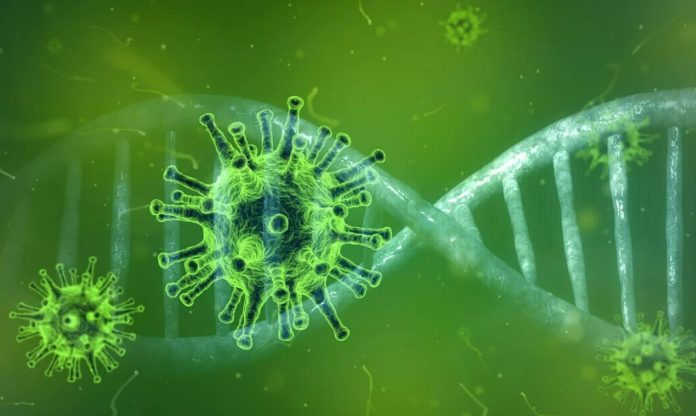The immune systems of people infected with COVID-19 can use the antibodies created during infections caused by other coronaviruses to help fight the disease, suggests a new study by a team of American scientists.
SARS-CoV-2 is not the first coronavirus that humanity has encountered. Before the pandemic, humans have faced at least six other types.
Scientists from Northern Arizona University and the Translational Genomics Research Institute (TGen) tried to understand how all of these coronaviruses activate the immune system of humans.
During their research, they studied in detail how the antibody response works.
“Our results suggest that COVID-19 can elicit an antibody response that already existed in humans before the current pandemic, which means that we may already have some degree of pre-existing immunity to the virus,” that causes that disease, said the Dr John Altin of TGen and lead author of the study, published in the journal Cell Reports Medicine.
How was the study conducted?
The researchers used a tool called PepSeq to accurately map the responses of the antibodies created by all coronaviruses. PepSeq is a novel technology that is being developed at TGen and Northern Arizona University, which allows the construction of various groups of peptides. By combining these short amino acid chains with high-throughput DNA sequencing, the scientists were able to investigate in depth the antibody response to viruses.
- Does This Mean We Stopped Being Animal and Started Being Human Due to ‘Copy Paste’ Errors?
- The One Lifestyle Choice That Could Reduce Your Heart Disease Risk By More Than 22%
- Aging: This Is What Happens Inside Your Body Right After Exercise
- Immune-Boosting Drink that Mimics Fasting to Reduce Fat – Scientists ‘Were Surprised’ By New Findings
- Gun Violence in America: What They Don’t Talk About at the Debate
In addition to SARS-CoV-2, the researchers examined the reactions of antibodies generated by infections with six other coronaviruses:
- MERS-CoV, which in 2012 caused the Middle East respiratory syndrome-CoV outbreak in Saudi Arabia;
- SARS-CoV, the first pandemic coronavirus that was behind the expansion of Severe Acute Respiratory Syndrome in 2003 in Asia
- HCoV-229E (Alphacoronavirus);
- the alphacoronavirus NL63 – Human coronavirus NL63 (277944);
- Betacoronavirus 1 (694003, includes Human coronavirus OC43);
- HKU1 betacoronavirus – HCoV-HKU1.
In fact, the first two are life-threatening and the last four represent endemic virus types that are usually not dangerous. They cause mild upper respiratory infections that resemble the common cold.
By comparing reaction patterns to these different types of coronaviruses, the researchers showed that SARS-CoV-2 could summon immune system antibodies that had been generated to respond to previous infections. This phenomenon is known as cross-reaction and occurs at two sites on the SARS-CoV-2 spike protein. The latter is found on the surface of the virus and helps it bind to ACE2 proteins to facilitate its entry into the human body and infect it.
“We subsequently demonstrated that these cross-reaction antibodies are preferably attached to coronavirus-peptides, suggesting that the response to SARS-CoV-2 in these regions may be limited by pre-coronavirus exposure,” Altin said.
What does the new study contribute to the fight against the pandemic?
Altin added that in the future these findings will need to be further studied to understand their possible implications in the treatment of COVID-19. In addition, American scientists believe their study will help design new diagnoses, evaluate the healing powers of plasma from recovered ones, and develop new therapeutic treatments.
Most importantly, the new findings will also contribute to the development of future vaccines or therapies capable of protecting against virus mutations, the US researchers say.
To make matters worse, knowledge of cross-reactions could help understand why COVID-19 patients show such different immune responses to the disease, including the absence of symptoms.
It is possible that the pre-existing antibodies identified by this study explain the contrast in the severity of older people’s condition against young. There is a chance that all these people will show different medical histories of previous coronavirus infection.
